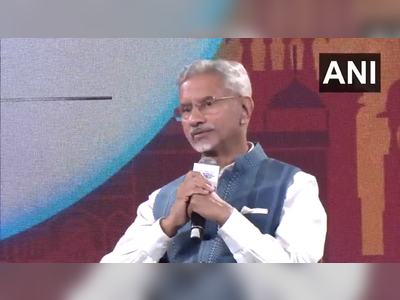Nvidia CEO Jensen Huang Visits Taiwan Amid AI-Chip Export Tensions
Huang meets TSMC and outlines next-generation chip developments as the company navigates U.S.-China regulatory pressure over AI hardware exports.
Nvidia Chief Executive Officer Jensen Huang made a brief visit to Taipei on August 22, where he met with leaders at Taiwan Semiconductor Manufacturing Company (TSMC) and delivered an internal address.
The trip preceded the company's earnings announcement and follows the temporary suspension of production for its H20 AI chip amid renewed scrutiny over security concerns from Chinese authorities.
Huang described the primary purpose of his visit as expressing gratitude toward TSMC, at which point he confirmed that six new chips, including a GPU and a silicon photonics processor based on Nvidia’s Rubin architecture, had been taped out and were ready for manufacture.
Huang stated that Nvidia is in discussion with the U.S. government regarding a potential follow-up chip for the Chinese market, provisionally named the B30A and based on the Blackwell architecture.
He emphasised that approval for any such export lies with U.S. authorities and remains unresolved.
Following a brief period during which Nvidia resumed shipments of the H20 chip to China, the company instructed key partners—Foxconn, Samsung, and Amkor—to halt new production amid warnings from Chinese regulators that raised concerns about possible security risks.
Huang defended the chip’s design as non-military and free from backdoor vulnerabilities.
He noted that Nvidia remains ready to ship additional units as soon as orders are placed.
The H20 was tailored specifically for the Chinese market in compliance with U.S. export restrictions, and Nvidia had ordered 300,000 units from TSMC in July in response to strong demand.
In tandem with discussions around chip exports, Huang acknowledged broader market pressures.
He noted that Nvidia’s chip sales in China have declined, with exports previously comprising a substantial revenue share, and the company absorbed a significant financial charge linked to lost sales under export control measures.
Amid intensified regulatory constraints, Nvidia is advancing a multi-chip rollout—including the Rubin-architecture set already taped out—and is pursuing approval pathways for the B30A chip, while maintaining readiness to supply the H20 when conditions permit.
The trip preceded the company's earnings announcement and follows the temporary suspension of production for its H20 AI chip amid renewed scrutiny over security concerns from Chinese authorities.
Huang described the primary purpose of his visit as expressing gratitude toward TSMC, at which point he confirmed that six new chips, including a GPU and a silicon photonics processor based on Nvidia’s Rubin architecture, had been taped out and were ready for manufacture.
Huang stated that Nvidia is in discussion with the U.S. government regarding a potential follow-up chip for the Chinese market, provisionally named the B30A and based on the Blackwell architecture.
He emphasised that approval for any such export lies with U.S. authorities and remains unresolved.
Following a brief period during which Nvidia resumed shipments of the H20 chip to China, the company instructed key partners—Foxconn, Samsung, and Amkor—to halt new production amid warnings from Chinese regulators that raised concerns about possible security risks.
Huang defended the chip’s design as non-military and free from backdoor vulnerabilities.
He noted that Nvidia remains ready to ship additional units as soon as orders are placed.
The H20 was tailored specifically for the Chinese market in compliance with U.S. export restrictions, and Nvidia had ordered 300,000 units from TSMC in July in response to strong demand.
In tandem with discussions around chip exports, Huang acknowledged broader market pressures.
He noted that Nvidia’s chip sales in China have declined, with exports previously comprising a substantial revenue share, and the company absorbed a significant financial charge linked to lost sales under export control measures.
Amid intensified regulatory constraints, Nvidia is advancing a multi-chip rollout—including the Rubin-architecture set already taped out—and is pursuing approval pathways for the B30A chip, while maintaining readiness to supply the H20 when conditions permit.








